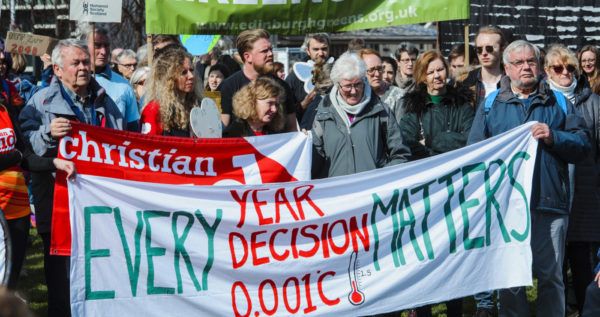
We need a plan fit for a Climate Emergency
Today the Scottish Government is expected to unveil its new Programme for Government. It is supposed to have climate change at its core. When Nicola Sturgeon stands up this afternoon she will outline a programme of bills and new policies that her government will introduce between now and the Scottish election in the spring of 2021. This period includes the two weeks at the end of next year when the eyes of the world will be on Scotland as we host the annual UN climate conference in Glasgow.
There is quite a high bar for this ‘Climate Emergency’ Programme for Government. We rated the one in 2017 the ‘greenest ever’ because it committed to low emission zones for air pollution, the deposit return scheme for cans and bottles, the Scottish National Investment Bank, the Just Transition Commission and the phase out of the need for petrol and diesel vans and cars by 2032.
What could be in the Programme for Government?
There are some existing things that are bound to get a mention: the new review of the current air pollution strategy is likely to lead to a commitment to a new strategy; the recommendations of an expert group for a Latte Levy will probably get the go ahead; and the long-promised Circular Economy Bill should finally see the light of day. There will no doubt also be mention of Scotland’s world-leading (but still not good enough) climate targets.
There could well also be things the government think are climate measures which we will think are a step backwards, top among these being any support for carbon capture and storage or hydrogen fuels, both of which inevitably lead to emissions from fossil fuels going on much longer into the future.
So, there will be some things we already know something about, possibly some things we would rather not have, but what about the new and radical policies that Scotland needs if we really are going to respond to the climate emergency?
Ideas we have been pushing include ending official support for getting every last drop of oil out of the North Sea, and instead planning for a managed phase out of extraction and a just transition to green jobs for the affected workers and communities. Crucial to this is a commitment to do much better at keeping decommissioning and renewable energy jobs in Scotland.
We have also suggested free bus travel for all, a move which would reduce air pollution, congestion and climate emissions, help people access work and reduce car dependence in rural areas. Luxembourg will have free public transport next year and cities around the world have free buses. Even better if those buses were in public ownership rather than run by big companies who have already demonstrated that they have no interest in improving our cities’ environments.
A ban on fossil fuelled vehicles in cities?
A related idea, which got publicity last week, was banning fossil-fuelled vehicles from our cities by 2030. This is a logical next phase for the Low Emission Zones which are being created in Aberdeen, Dundee, Edinburgh and Glasgow, and complements the Scottish Government’s plans to phase out fossil-fuelled vehicles everywhere in the long term.
There is plenty to do to reduce climate emissions from our buildings but a good start would be to commit to match the UK Government’s plan to end the fitting of gas boilers in new homes by 2025 and to go further and end the replacement of existing gas boilers by anything not powered by renewables by the same date.
Fingers crossed for a truly radical plan to deliver a jobs-rich, healthier Scotland that meets its international climate responsibilities.
Dr Richard Dixon is Director of Friends of the Earth Scotland. A version of this article appeared in The Scotsman on Tuesday 3rd September.
